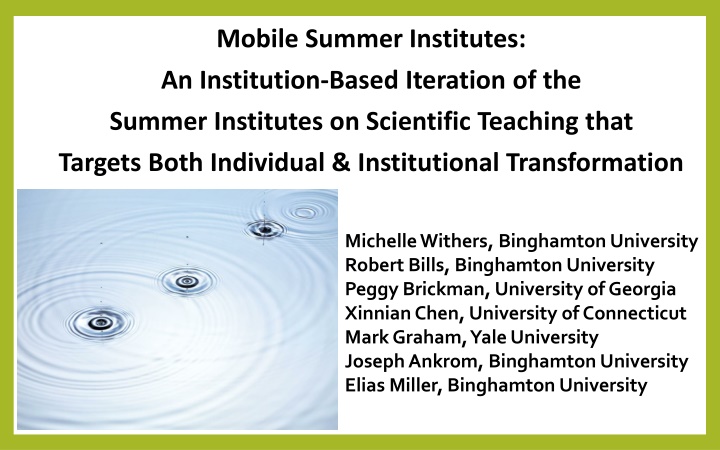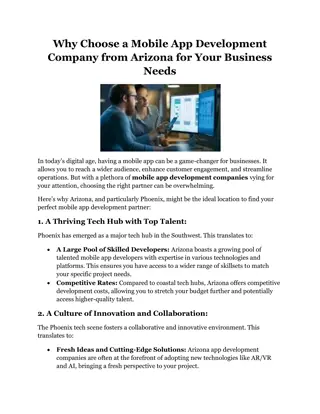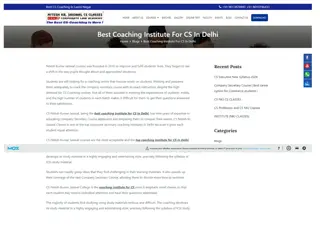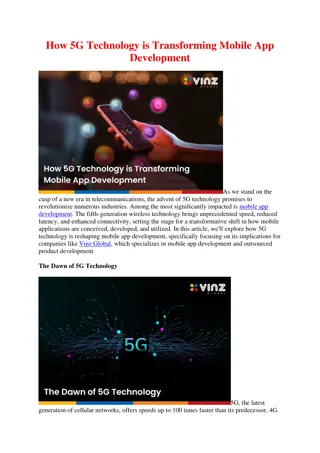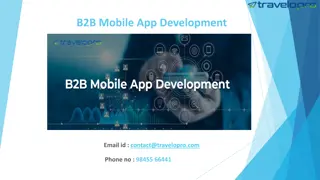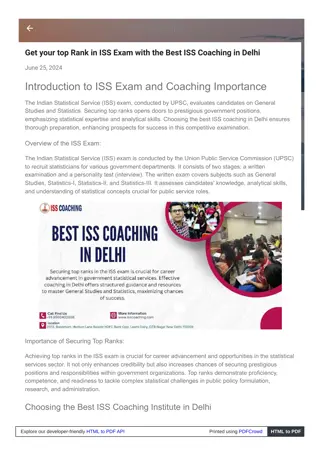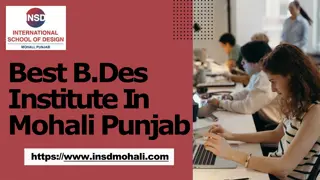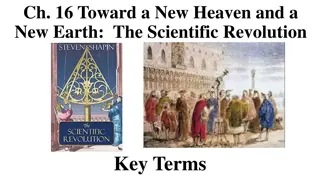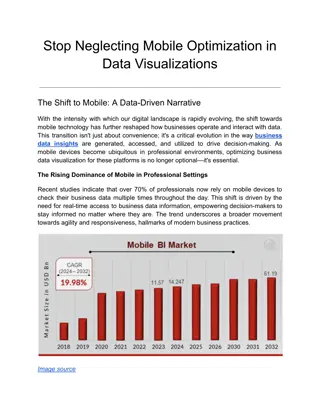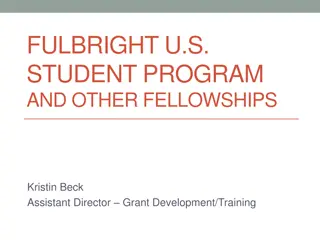Transformative Approach in Scientific Teaching: Mobile Summer Institutes
Innovative Mobile Summer Institutes on Scientific Teaching aim at individual and institutional transformation through active learning, assessment, and inclusive teaching practices. The program focuses on fostering a shared vision, strategic planning, and pedagogical training to enhance reflective practices and policy change support. The institutes offer a structured curriculum addressing various teaching methodologies and administrative support for educators.
Download Presentation

Please find below an Image/Link to download the presentation.
The content on the website is provided AS IS for your information and personal use only. It may not be sold, licensed, or shared on other websites without obtaining consent from the author.If you encounter any issues during the download, it is possible that the publisher has removed the file from their server.
You are allowed to download the files provided on this website for personal or commercial use, subject to the condition that they are used lawfully. All files are the property of their respective owners.
The content on the website is provided AS IS for your information and personal use only. It may not be sold, licensed, or shared on other websites without obtaining consent from the author.
E N D
Presentation Transcript
Mobile Summer Institutes: An Institution-Based Iteration of the Summer Institutes on Scientific Teaching that Targets Both Individual & Institutional Transformation Michelle Withers, Binghamton University Robert Bills, Binghamton University Peggy Brickman, University of Georgia Xinnian Chen, University of Connecticut Mark Graham, Yale University Joseph Ankrom, Binghamton University Elias Miller, Binghamton University
Evolution of the Summer Institutes on Scientific Teaching Mobile Regional Summer Institute Original Summer Institute Summer Institute 2016 2008 2012 Present 2004 Interntl MoSIs Canada China Norway Saudi Arabia MoSI Host Institutions SI participants 2004-2016
Organizing Principle - Scientific Teaching Active Learning & Assessment Backward Design Student-Centered Learning Inclusive Teaching Condensation of evidence-based teaching practices
Mobile Institute on ST = place-based iteration of the SI Pedagogical training modeled after the original SI Developing reflective practices through course evaluation & peer review Individual Fostering administrative support of policy change to support transformation Developing a shared vision through strategic planning Environmental Prescribed Emergent Henderson, et al. (2010) JCST
MoSI Week-at-a-Glance Day/ Time 2pm Friday Welcome/ Introduction Friday, Strategic Planning I: Visioning Needs Assess. Consensus Monday Tuesday Wednesday Thursday 10:00 Scholarly Teaching Backward Design II Inclusivity Group Work IV 11:00 Peer Feedback & Evaluation 12:00 Lunch Lunch Lunch Lunch Lunch 1:00 Backward Design I Scientific Teaching in Action Strategic Planning II: Action Planning Group Work III 2:00 Presentations Group reports Group Work I Group Work II 3:00 Administrator workshop Group Share Wrap-up 04/28/2013 | 5
Carnegie Classification # of MoSI Associates Baccalaureate Masters Research 1, 2, 3 Medical school HBCU/HSI/MSI International Sustainable Total Institutions Total MoSIs Participants ~ Students impacted 3 4 2 17, 1, 5 1 6* 5 10* 38 72 1760 364300 Institutional Reach of the MoSIs
What are the characteristics of a campus ideal for student learning? 1.00 R1 Non-R1 0.90 0.80 0.70 0.60 0.50 0.40 0.30 0.20 0.10 0.00 04/28/2013 | 7
An exemplar a Mid-Atlantic HBCU >100 participants from: Biology, Business, Chemistry, Computer Science, Education, Engineering, English, Family and Consumer Science, Mathematics, Nutrition, Physics, Psychology, Public Health, Social Work, Sociology, Theatre Arts 04/28/2013 | 8
Mid-Atlantic HBCU: Impacts Increased number of active learning classrooms Increased use of active, student-centered teaching strategies Departmental policy changes around teaching development Departmental adoption of a national observation protocol for teaching evaluation accompanied by changes in expectations for teaching 04/28/2013 | 9
Next Steps Continue self-funded model of MoSIs In-person and virtual formats NSF proposal to leverage state school connections MoSI Host Network meeting Fall 2021 Research on impact (3 years or more after 2nd MoSI): Individual surveys practice & culture Analysis of strategic plans Measure longer-term institutional outcomes
Acknowledgments SI Founders: Jo Handelsman, William Wood, Sarah Miller and Christine Pfund National Institute on Scientific Teaching (NIST) MoSI Training/Leadership Team Michelle Withers (leader), Mentewab Ayalew, Mark Baillie, Erin Baumgartner, Jim Belanger, Jessamina Blum, Peggy Brickman, Rich Cardullo, Xinnian Chen, Bill Davis, Christine Hohmann, Mays Imad, Kasi Kiehlbaugh, Jenny Knight, Mark Lee, Stanley Lo, Breonna Martin, Melissa Michael, Randall Phillis, Debra Pires, Suann Yang, MoSI Research Team Michelle Withers, Joseph Ankrom, Robert Bills, Peggy Brickman, Xinnian Chen, Mark Graham, Elias Miller
